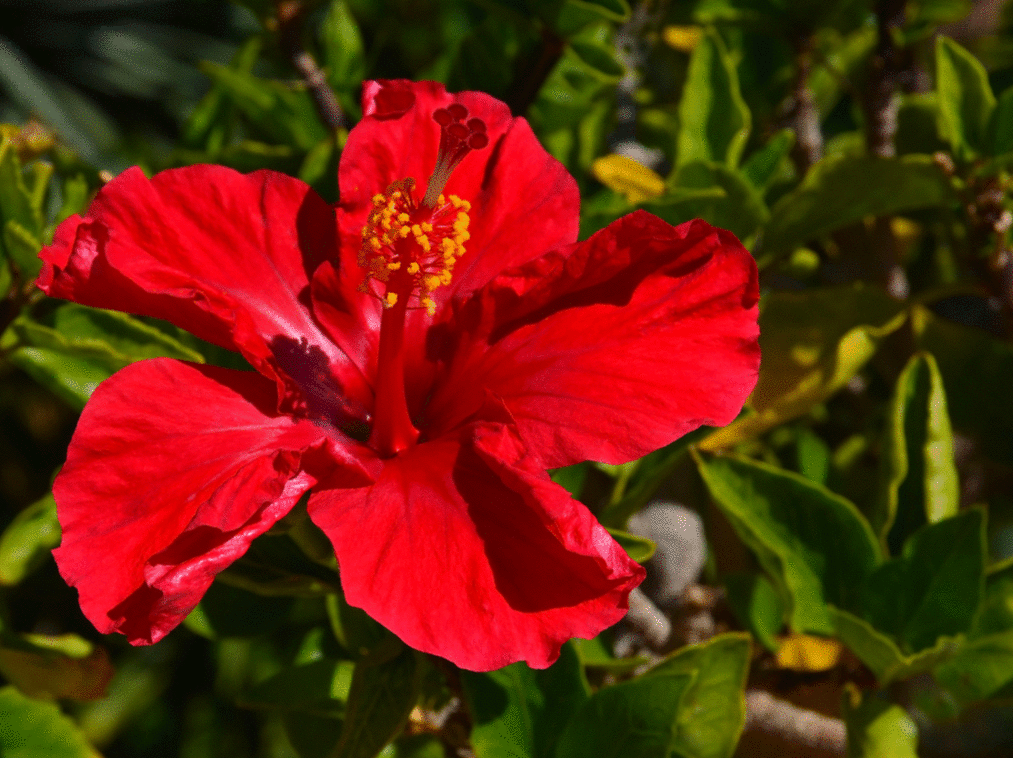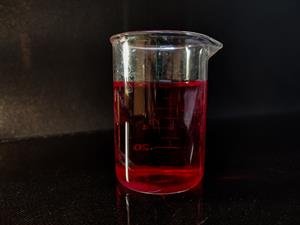PDF chapter test TRY NOW
The petals of china roses also act as a natural indicator. In this lesson we will do an experiment to know how that is work.
Note: Anthocyanin, a water-soluble pigment found in china roses, changes colour when it reacts with an acid or a base.

Hibiscus flowers
Example:
How to prepare a China rose indicator?
Step 1: Take some petals china roses in a cup.
Step 2: And some warm water in that cup.
Step 3: Let it rest aside until the water colour changes.
Step 4: Filter the solution.
Step 1: Take some petals china roses in a cup.
Step 2: And some warm water in that cup.
Step 3: Let it rest aside until the water colour changes.
Step 4: Filter the solution.
Result: The filtered coloured solution will act as the indicator to test the acid and base solutions.
Note: China rose indicator changes the acidic solution to magenta (dark pink). It turns the basic solution to dark green colour and no colour change in neutral solutions.
Let us now test the below solutions for their acidity and basicity by adding the prepared solution to it. And observe the changes in their colour.

Solutions to be tested
Solutions to test | Colour change | Acid/Base |
Soap solution | Dark green colour | Base |
Lemon juice | Dark pink colour | Acid |
Sugar solution | Dark pink colour | Acid |
Vinegar | Dark pink colour | Acid |
Tea, coffee, wine | Dark pink colour | Acid |
Cold drinks | Dark pink color | Acid |
Salt solution | Dark green color | Base |

Colour change in acids: Dark pink colour

Colour change in base: Dark green colour.
